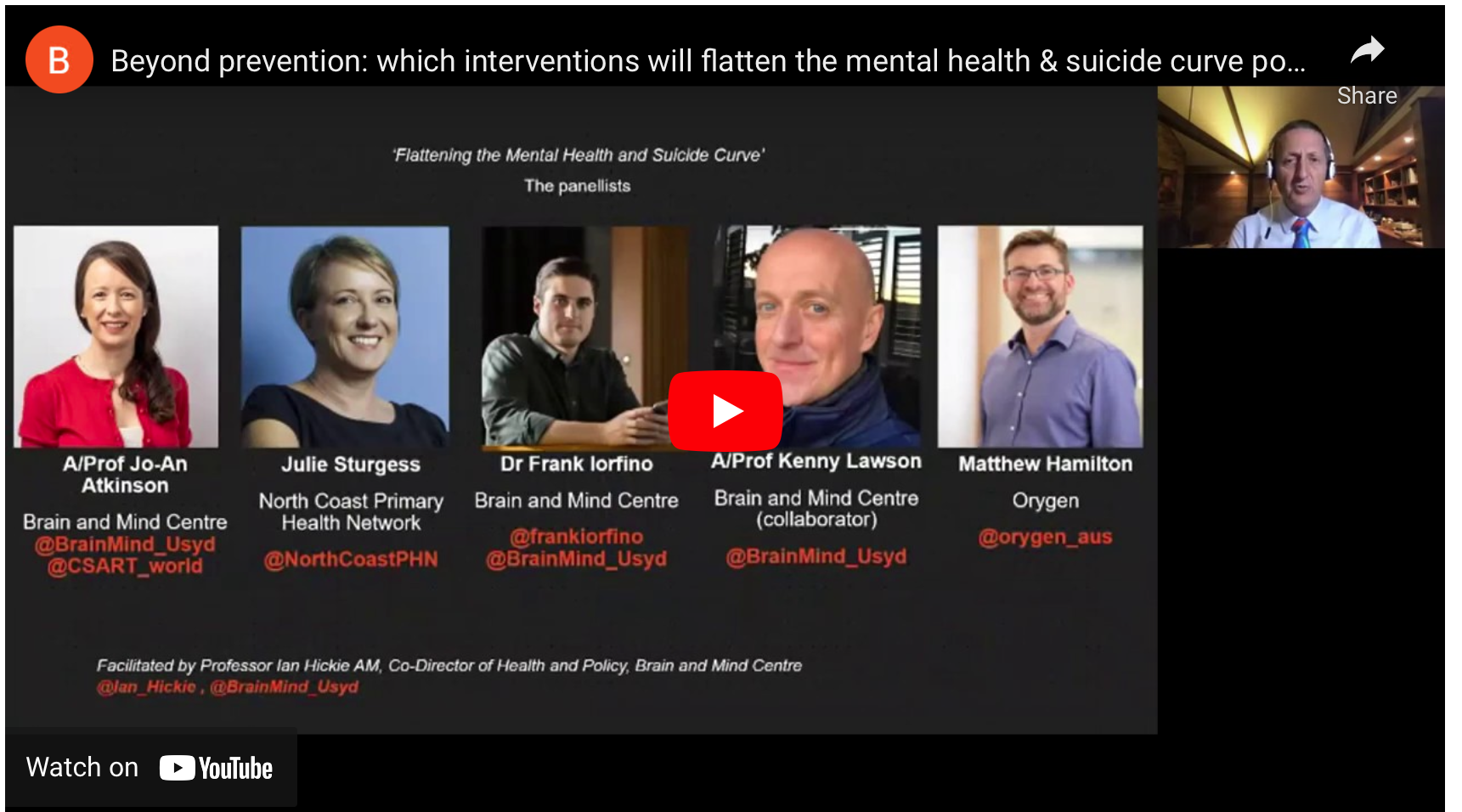Federal and state cooperation necessary but not sufficient for effective regional mental health systems: insights from systems modelling and simulation
Peer reviewed: Yes Authors: Occhipinti, Jo-An and Skinner, Adam and Carter, Samantha and Heath, Jacinta and Lawson, Kenny and McGill, Katherine and McClure, Rod and Hickie, Ian B. Publication: Scientific Reports. Year: 2021 DOI: https://doi.org/10.1038/s41598-021-90762-x Method: A system dynamics model of pathways between psychological distress, the mental health care system, suicidal behaviour and their drivers was developed, tested, and validated for a large, geographically diverse region of New South Wales; the Hunter New England and Central Coast Primary Health Network.




